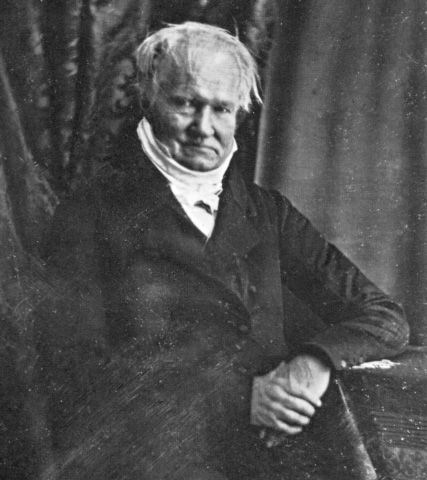Having established in the last installment that the faith of the Founders is ultimately irrelevant, it may seem odd or even self-defeating to turn now and attempt to shed light on the question of whether or not the Founders were Christians. I can offer only two excuses. The first is a reiteration of Thomas Kidd's assertion quoted in the previous post that, no matter how inconsequential the faith of the Founders may be, it nevertheless presents an interesting topic for inquiry. Additionally, even while the debate over the faith of the Founders is ridiculous because the topic is ancillary at best, there is a whole additional layer of absurdity in the way it is being argued. The arguments are so utterly superficial and historically naive that they couldn't be said to demonstrate the point one way or the other, even if the point were relevant. With that in mind, I would like to suggest two misconceptions in the popular discourse which when corrected allow for a clearer insight into the religious make up of the Founders.
Most attempts to co-opt the Founding Fathers suffer from the common flaw of anachronism. This is particularly true in the discussion of their religion, as people fail to recognize the fluidity of language and the concepts which it represents. This is certainly true of the deism of the more liberal Founders. When people read the critiques of contemporary Christian concepts (e.g. biblicism, election, hierarchy), they transport them too readily and too directly into modern discourse. What modern pundits do not seem to be aware of is that eighteenth century deism was a movement
within Christianity. E. Brooks Holifield, in his Theology in America, points out that not only did deists at the time typically not see themselves as a religion separate from Christianity, deists actually "saw themselves as contributing to a reform of Christian thought in accord with eighteenth-century norms of reason." Certainly there were some exceptions, and Thomas Paine would likely be in that category, but Holifield stresses that the strongest and most influential deists, among whom he includes Benjamin Franklin and Thomas Jefferson, "tended to be sedate, aristocratic, prudent, and willing to identify themselves with a purified Christian theology." It is critical to remember that Thomas Jefferson self-identified as a Christian and assumed that the freedom of religion he thought to enshrine at every level of government would lead to a generation of Americans who were predominantly Unitarian Christians. Deism, pluralism, and even Unitarianism have all been caught up in a liberal, secular drift that wants to, and perhaps rightly does, claim people like Jefferson in their intellectual heritage. These are the movements of history, however, and an intellectually honest appraisal of religion among the Founding Fathers must admit that, almost to a man, the Founding Fathers were Christians. They were diverse in their shades of Christianity, certainly, but Christians nonetheless, both by self-identification and contemporary standards.
But before anyone gets too excited, I am not endorsing any argument that the Founders were Christians in any way that is meaningful in the present and certainly not in a way that legitimates an understanding of America as a Christian nation. Just as the contemporary understanding of Deism is read incorrectly back onto the Founders, so too is a contemporary understanding of what it is to be a Christian. Those who argue most ardently that the Founders were Christians tend to be of a certain conservative, democratic, conversion-oriented brand. In short, they are almost uniformly evangelicals. It is important for evangelicals to remember that to whatever degree the Founders may be have been Christian, they were not the kind of Christians that most politically vocal Christians are today. Evangelicalism certainly contributed to revolutionary thought because the movement had its inception in the First Great Awakening. Nevertheless, as it would not reach its ascendency until the Second Great Awakening, one should not overestimate the degree to which even the most Christian Founders would have felt at home in the religious context of modern Christianity. Positions of power, intellectual and political, were as likely or more likely to be occupied by the theologically liberal, socially progressive patriots than any of the new revivalist groups. Add to these the Anglican power structures which dominated spheres of power in the South in the earliest republic and the ultra-conservative Reformed thinkers of New England, and what is left is a religious landscape in which the radically revivalistic, individualistic, and socially conservative evangelicals of modern times would have been largely without a home. Modern Catholics are even more self-deluded in appealing to the faith of the Founders, because for early Americans Christianity was synonymous with Protestantism. They had no qualms for centuries resorting to oppressive legislation to stem the power of Catholicism in the States. The same is true of Mormons.
In short, people who appeal either to the secular humanism of the Founders or to the pious Christianity both misunderstand the religious climate of the earliest days of the nation. Were any of the Founders whisked into the present on a time machine, they would like be considered by most liberals to be Christians and by most Christians to be nominal adherents if not outright pagans.
